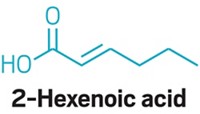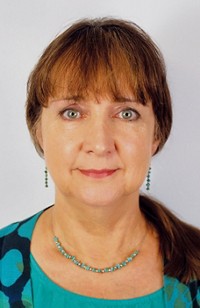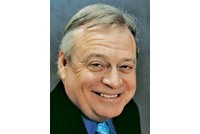Advertisement
Grab your lab coat. Let's get started
Welcome!
Welcome!
Create an account below to get 6 C&EN articles per month, receive newsletters and more - all free.
It seems this is your first time logging in online. Please enter the following information to continue.
As an ACS member you automatically get access to this site. All we need is few more details to create your reading experience.
Not you? Sign in with a different account.
Not you? Sign in with a different account.
ERROR 1
ERROR 1
ERROR 2
ERROR 2
ERROR 2
ERROR 2
ERROR 2
Password and Confirm password must match.
If you have an ACS member number, please enter it here so we can link this account to your membership. (optional)
ERROR 2
ACS values your privacy. By submitting your information, you are gaining access to C&EN and subscribing to our weekly newsletter. We use the information you provide to make your reading experience better, and we will never sell your data to third party members.
People
ACS Award For Computers In Chemical & Pharmaceutical Research
by Rick Mullin
January 21, 2013
| A version of this story appeared in
Volume 91, Issue 3
Sponsored by ACS
This year’s award recipient, H. Bernhard Schlegel, is credited with promoting computational chemistry through the development and dissemination of algorithms that helped open the field to nonexperts. In particular, his exploration of potential-energy surfaces for chemical reactions has resulted in methodologies incorporated into theoretical and computational chemistry software now standard in chemical research.
Schlegel, 61, a professor of chemistry at Wayne State University, is perhaps best known as the creator of the Berny optimizer, an optimization program stemming from his doctoral research at Queen’s University, in Kingston, Ontario, where he earned a Ph.D. in physical organic chemistry in 1975. The program was popularized with its inclusion as a molecular geometry optimization program in the ubiquitous Gaussian suite of software developed by Nobel Laureate John Pople and associates.
When Schlegel began studying chemistry, researchers had to fend for themselves regarding software tools. Even in this environment, he showed a natural propensity for computational work. “My adviser wanted me to do a combination of experimental organic chemistry and computation,” he says. “I found I had a unique talent for making black and insoluble tars—none of the reactions I did worked out very well. I was in better tune with writing the computer programs and making them do what I wanted them to do.”
Awarded a National Research Council of Canada-North Atlantic Treaty Organization postdoctoral fellowship, Schlegel began work at Princeton University and then continued his postdoctoral studies at Carnegie Mellon University, where he developed his geometric optimization program. After two years at Merck Sharp & Dohme Research Laboratories, where he carried out molecular orbital calculations for guiding drug design, Schlegel took an assistant professorship at Wayne State in 1980. He was promoted to full professor in 1986.
Schlegel has been instrumental in developing and teaching computational methods over a 30-year period during which computers filled chemistry laboratories. “In the 1970s,” he says, “computational chemistry was just for experts playing around with small model systems. By the ’80s, there were certain classes of problems that computation methods could solve almost as accurately as experimental work, and by the ’90s, there were areas of physical chemistry where computation was a sort of equal partner with experimentation.”
Schlegel played a role in brokering that partnership, according to G. Andrés Cisneros, a colleague in Wayne State’s chemistry department. “Millions of calculations are carried out each year worldwide with Gaussian, utilizing the algorithms developed by Schlegel and his group. His work touches every aspect of chemistry today,” Cisneros notes.
Credited with more than 340 publications, Schlegel has received an extraordinarily large number of citations. “Optimization of Equilibrium Geometries and Transition Structures,” published in the Journal of Computational Chemistry in 1982, for example, garnered more than 2,300 citations. Addressing the combination of structure theory and potential-energy surface exploration with the application of quantum chemistry to the study of reactivity and mechanism, the paper has been called the culmination of Schlegel’s research program through the 1970s and the basis for his work going forward.
Schlegel will present the award address before the ACS Division of Computers in Chemistry.






Join the conversation
Contact the reporter
Submit a Letter to the Editor for publication
Engage with us on Twitter